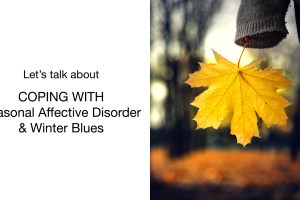
HIV stands for human immunodeficiency virus, which is the virus that causes HIV infection. The abbreviation “HIV” can refer to the virus or to HIV infection. AIDS stands for acquired immunodeficiency syndrome. AIDS is the most advanced stage of HIV infection.
HIV attacks and destroys the immune system’s infection-fighting CD4 cells (CD4 T lymphocytes). The loss of CD4 cells makes it difficult for the body to fight off infections and certain cancers. Without treatment, HIV can gradually destroy the immune system, and HIV infection advances to AIDS.
What are the symptoms of HIV and AIDS?

Within 2 to 4 weeks after infection with HIV, some people may have flu-like symptoms, such as fever, chills, or rash. The symptoms may last for a few days to several weeks. Other possible symptoms of HIV include night sweats, muscle aches, sore throat, fatigue, swollen lymph nodes, and mouth ulcers. Having these symptoms do not mean you have HIV. Other illnesses can cause the same symptoms. Some people may not feel sick during early HIV infection (called acute HIV infection). During this earliest stage of HIV infection, the virus multiplies rapidly. After the initial stage of infection, HIV continues to multiply but at very low levels.
More severe symptoms of HIV infection, such as a badly damaged immune system and signs of opportunistic infections, generally do not appear for many years until HIV has advanced to AIDS. People with AIDS have badly damaged immune systems that make them prone to opportunistic infections. (Opportunistic infections are infections and infection-related cancers that occur more frequently or are more severe in people with weakened immune systems than in people with healthy immune systems.)
Without treatment with HIV medicines, HIV infection usually advances to AIDS in 10 years or longer, though it may advance faster in some people.
HIV transmission is possible at any stage of HIV infection—even if a person with HIV has no symptoms of HIV.
What are the types of HIV tests?
Three types of tests are used to diagnose HIV infection: antibody tests, antigen/antibody tests, and nucleic acid tests (NATs). Your health care provider can determine the appropriate HIV test for you. How soon each test can detect HIV infection differs because each test has a different window period. The window period is the time between when a person may have been exposed to HIV and when a test can accurately detect HIV infection.
- Antibody tests check for HIV antibodies in blood or oral fluid. HIV antibodies are disease-fighting proteins that the body produces in response to HIV infection. Most rapid tests and home-use tests are antibody tests.
- Antigen/antibody tests can detect both HIV antibodies and HIV antigens (a part of the virus) in the blood.
- NATs look for HIV in the blood.
A person’s initial HIV test will usually be either an antibody test or an antigen/antibody test. When an HIV test is positive, a follow-up test will be conducted. Sometimes, people must visit a health care provider to take a follow-up test. Other times, the follow-up test may be performed in a lab using the same blood sample that was provided for the first test. A positive follow-up test confirms that a person has HIV.
Talk to your health care provider about your HIV risk factors and the best type of HIV test for you.
What is the treatment for HIV?
The treatment for HIV is called antiretroviral therapy (ART). ART involves taking a combination of HIV medicines (called an HIV treatment regimen) every day.
Antiretroviral therapy is recommended for everyone who has HIV; however, there is no cure. HIV medicines help people live longer, healthier lives and reduce the risk of transmission.
When is it time to start taking HIV medicines?
People with HIV should start taking medicines as soon as possible after diagnosis. It is especially important for people with AIDS-defining conditions or early infection to start HIV medicines right away. (Early HIV infection is the period up to 6 months after infection.)
Women with HIV who become pregnant and are not already taking HIV medicines should also start taking them as soon as possible.
Ways HIV Cannot Spread
HIV does not survive well outside the body. HIV cannot be spread from one person to another in any of the following ways:
In studies of hundreds of households in which families have lived with and cared for people who have AIDS, including situations in which no one knew that the person was HIV-infected, HIV was spread only when there was sexual contact or needle-sharing with the infected person or contact with the infected person’s blood.
HIV is not spread in such settings where exposures are repeated and prolonged and can involve contact with an infected person’s body fluids, so it is even less likely to be spread in other casual social settings, such as schools and offices.
HIV cannot be spread by sharing drinking glasses or by casual kissing. The risk of spreading the virus through “deep” kissing in which large amounts of saliva are exchanged is extremely low. Only one unproven case has ever been reported.
No cases of HIV spread have ever been reported after a person has come in contact with the sweat, tears, urine, or feces of an HIV-infected person.
Want to get a headstart on your health? We deliver a Diabetes Self-Management Education and Support program accredited by the Association of Diabetes Care & Education Specialists to meet the needs of people affected by the disease. Call MHEDS at 814-453-6229 (Peach Street) or 814-616-7730 (John F. Kennedy Center).
Our health information does not replace the advice of a doctor. Please be advised that this information is made available to assist the public in learning more about their health. MHEDS’ providers may not see and/or treat all topics found herein.
Sources
HIV info.nih.gov (2022, December 1) Retrieved December 5, 2022, from https://hivinfo.nih.gov/understanding-hiv/fact-sheets/hiv-treatment-basics
Ways HIV cannot be spread. Ways HIV Cannot Be Spread - Community Health Net. (2022, July 13). Retrieved December 5, 2022, from https://www.community-healthnet.com/patient-education/healthwise/?DOCHWID=hw188479








